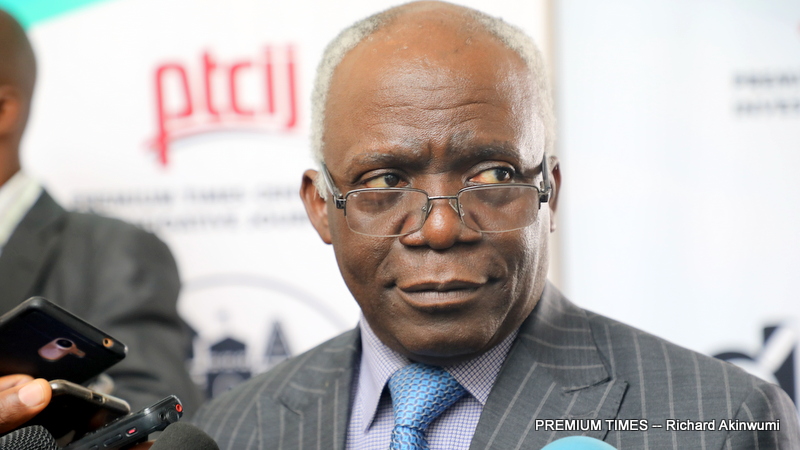Falana: Why Buhari is reluctant to assent to electoral bill
Femi Falana, a senior advocate of Nigeria (SAN), says some governors in the All Progressives Congress (APC) are influencing President Muhammadu Buhari’s decision not to assent to the electoral bill.
On November 19, TheCable had reported that the national assembly transmitted the electoral act amendment bill to the president for assent.
According to the constitution, the president has 30 days within which he is expected to assent to the bill.
However, according to law, the national assembly, can override Buhari by a two-third vote in a case where no action is taken by the president on the bill.
In the case of the electoral bill, the deadline for the presidential assent is December 19.
Speaking on the development on Wednesday at TheCable Colloquium, Falana said the president is reluctant to assent the bill due to pressure from some governors who are worried about certain amendments in the electoral act.
Falana: Why Buhari is reluctant to assent to electoral bill
He said the governors, who are in the ruling party, are concerned about the provision of electronic voting, which he alleged would make election manipulation difficult.
“The president is reluctant to give assent to the bill because the powerful governors in his party, the ruling party, are saying it is going to be much more expensive for them to run direct primaries,” he said.
“Therefore, throw away the baby and the bath water. But where they’re actually going is that those governors have not recovered from the shock of having electronic vote. They know manipulation will be reduced to the minimum.
“That’s why they are asking the president to throw away that bill. They aren’t saying take it back to the national assembly so that the area of direct primaries can be removed.
“The bill can be rejected only on one ground. The 2018 bill was rejected by the president on the ground that it’s too close to the 2019 election. Now, the president may also say signing this bill now may be too close to the election and might cause confusion.”












Add Comment